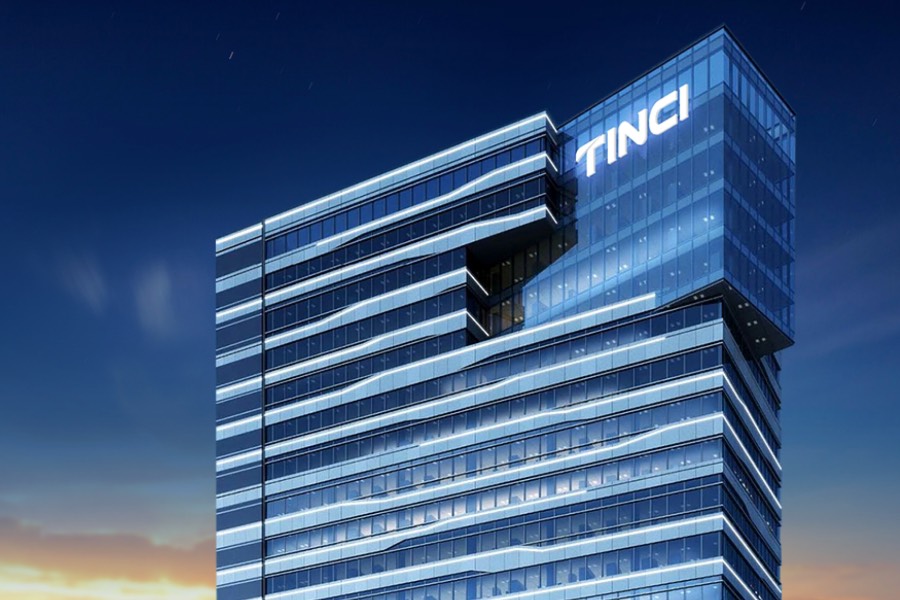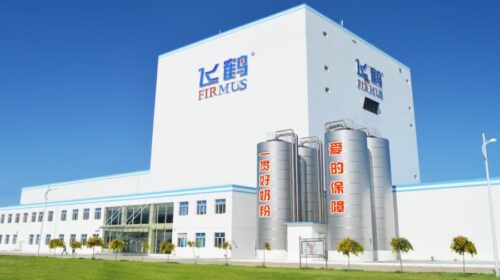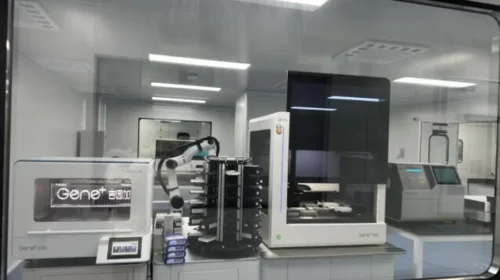Tinci Materials eyes Hong Kong listing, hoping investors see past its sagging profits

The lithium battery materials maker aims to use funds from its planned IPO to advance its global expansion, as it grapples with declining profits and weak prices
Key Takeaways:
- Tinci Materials plans to make a Hong Kong IPO, whose proceeds would go to advancing its global expansion strategy
- The lithium battery material maker’s profit dropped 74.4% last year to 483 million yuan, but showed signs of stabilizing starting in the fourth quarter
By Lee Shih Ta
Growing global interest in new energy materials is prompting Guangzhou Tinci Materials Technology Co. Ltd. (002709.SZ) to consider trying its hand at global fundraising. The company said it plans to file for a Hong Kong IPO, aiming to see if the market’s international investors agree with their Chinese counterparts who have valued its Shenzhen-listed shares at over 35 billion yuan ($4.88 billion). As the listing plan moves forward, all eyes will be watching to see how this lithium-ion battery concept stock fares under scrutiny from the international investors who typically set the tone in Hong Kong.
Tinci says its planned Hong Kong listing aims to further advance its global expansion strategy by building an international capital-raising platform to fund and develop its nascent overseas business, according to a public filing last week with the Shenzhen Stock Exchange.
Founded in 2000, Tinci started out producing surface-active agents (surfactants), chemical products that reduce the surface tension of a liquid. It moved into the lithium-ion battery electrolyte business in 2011, kicking off a rapid growth phase for the company. Such electrolytes are a key material used to make lithium-ion batteries, whose demand has exploded with the rapid rise of the new energy vehicle (NEV) and energy storage markets.
The company’s electrolyte products are widely used in power-generation, storage and 3C digital batteries, with such electrolytes and related raw materials contributing more than 80% of its revenue in 2024. The company accounts for around 13% of the lithium-ion electrolyte market in China, ranking it among the top three players, according to data from Gaogong Lithium Battery and Hua’an Securities.
Tinci supplies its materials to a number of globally renowned battery and auto companies, including domestic giants such as CATL, BYD, Gotion High-tech and EVE Energy, as well as global names like LG New Energy, Samsung SDI, SK On and Tesla. It’s also active in the battery supply chains of consumer electronics brands such as Apple, Huawei and Xiaomi, which use lithium-ion batteries in their smartphones and other electronic devices.
Tanking gross margin
While lithium batteries are here to stay, at least for the next decade or two, the industry has become a bloody battlefield lately plagued by price wars and overcapacity. For Tinci, that’s translated to tanking profits, even as the company maintains its annual revenue at over 10 billion yuan. Tinci’s revenue declined 18.8% year-on-year to 12.52 billion yuan in 2024, as its net profit plunged 74.4% to 483 million yuan, according to its latest annual financial statement.
The company’s woes stem from major declines in average prices of its electrolyte products from their earlier highs. Prices of lithium and lithium battery materials plummeted across the board starting in 2023 from record highs, just as demand from the NEV industrial chain started to slow after several years of rapid growth. Compounding the problem was a supply glut that was the result of a major buildup of new manufacturing capacity during the boom.
According to data from IFIND, the price of lithium hexafluorophosphate, a key material in lithium-ion batteries, tumbled from 590,000 yuan per ton to just 70,000 yuan, down more than 90%. That contributed to a drop of more than 60% in the average price of related electrolyte materials. As a result, the unit price for Tinci’s electrolyte fell 35% last year, causing its revenue to decline even as it sold 26% more electrolyte material by volume compared with 2023. The falling prices caused the company’s gross margin to plunge by 7.8 percentage points to 17.45%, hitting a 19-year low.
Notably, the company’s situation seemed to stabilize in the fourth quarter, when its revenue of 3.66 billion yuan was up both quarter-on-quarter and year-on-year. Its net profit for the quarter reached 146 million yuan and its gross margin rebounded to 19.9%, signaling the worst might be in the past. Things continued to improve in the first quarter, with its revenue and profit rising 41.6% and 30.8%, respectively, year-on-year. That could partly explain the rationale for why it’s now moving ahead with the Hong Kong IPO plan.
Such a listing would achieve a number of strategic goals. Firstly, it would broaden Tinci’s financing channels and offset constraints caused by tight liquidity and volatility in the Shenzhen market. Such a listing could also provide some relief for the company’s finances that have come under short-term strain during the downturn.
That said, Tinci still looks like a strong bet over the medium- to long-term, as it continues to hold key technologies and the ability to build out capacity across the globe. Its leadership in the global electrolyte industry also offers international investors a chance to gain exposure to the growth story of China’s new energy materials sector.
Early global expansion progress
A Hong Kong listing also offers Tinci a window to attract long-term institutional equity investors and offshore funds, which could help it burnish its global brand image. In a similar move, Tinci has set up a subsidiary in South Korea called Tinci Materials Tech Korea Ltd., and began the construction process for a local electrolyte-production factory to serve Korean clients such as LG New Energy and SK On.
The company is also scouting for sites in Hungary to produce for battery makers serving EV clients in Europe. In addition to factory-building, Tainci is also setting up tech support and sales facilities in countries including Japan, Germany and India to build out its global servicing capabilities. While overseas revenue still accounts for only a limited share of its total, the company hopes to accelerate the international sales contribution as its production lines gradually come online in Asia and Europe.
Despite recent industry woes, Tinci’s main electrolyte business still boasts significant advantages in terms of its technological capabilities and a global clientele base. That should position the company for a revival as prices stabilize and demand for next-generation materials continues to grow. Now, the challenge for Tinci will be presenting Hong Kong investors with a positive narrative about prospects for China’s new energy materials sector, and its own ability to improve its profitability as the lithium battery sector stabilizes.
To subscribe to Bamboo Works weekly free newsletter, click here






